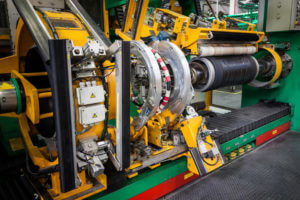
Converting From Hydraulic to Electric High-Force Linear Actuators with Force Feedback
Got a high-force linear motion application? If you do, chances are the first product solution to come to mind is hydraulic cylinders. After all, they’re relatively inexpensive (if you already have a hydraulic power unit – HPU – in place), compact (if the HPU’s somewhere else) and power-dense.
But what about the disadvantages of hydraulic cylinders? Leaks, operation and maintenance costs, and more? Now that there are electric high-force linear actuators, machine designers have a choice. It’s possible to convert an application from hydraulic to electric linear motion easily. Our guide, How to convert hydraulic cylinders to an electric actuator alternative, gives you a step-by-step explanation of the process.
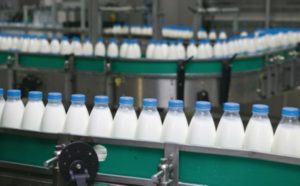
The case for electric rod actuators in food processing applications
Producing food that’s delicious, affordable and safe requires a lot from manufacturers. Process automation makes affordability possible and ensures consistently top-quality food. Safe food products and beverages are free of contamination, so the equipment used in food processing has to meet crucial requirements for cleanliness. That includes linear actuators.
Selecting a linear actuator for a food processing application requires careful consideration. A machine designer may look at hydraulic cylinders, pneumatic cylinders, rodless electromechanical actuators and electric rod actuators.

Achieve better quality welds with electric servo actuators
Car buyers demand top quality and durability in their vehicles. Automobile manufacturers strive to meet and even exceed these demands. The welds that hold a car’s body together are fundamental to the vehicle’s quality, so it’s essential that weld quality is the best.
Robots are often used in auto body welding because they’re fast and consistent. When it comes to controlling the weld gun, an automobile manufacturer has a choice: use a pneumatic actuator or an electric integrated servo linear actuator. An electric servo actuator will provide better weld quality, consistently.

Need low cost linear motion? Total cost of ownership is key
How are industrial linear motion components like icebergs?
They say 90% of an iceberg’s volume is hidden under water. When you buy linear motion components, specifically hydraulic and pneumatic cylinders, the real cost may be hidden as well. If you’re looking for low cost linear motion, you may be attracted to the low purchase price of fluid power cylinders. However, purchase price is just the tip of the iceberg. To get a true picture, you need to look at total cost of ownership (TCO), including the long-term operating costs of the equipment.
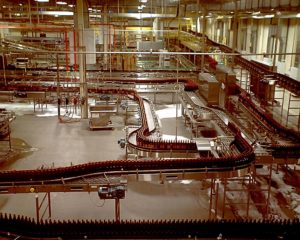
Integrated servo motor simplifies sourcing electric linear motion
An OEM’s component sourcing strategy will impact the final cost of a piece of automation equipment. While it can seem best to source parts from multiple suppliers, the time and cost involved in sourcing and integrating parts can raise the total machine cost significantly. Using a single-source approach and integrated components, like an integrated servo motor and controller for an electric linear motion system, can save time and money in the long run.
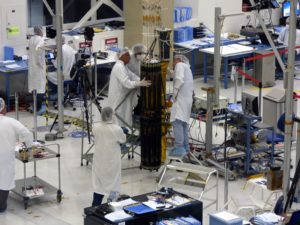
Electric high-force linear actuators keep medical manufacturing clean
Machine designers know that hydraulic cylinders offer compact size and excellent power density. Designers also know there are serious drawbacks that make these cylinders problematic in many applications – problems such as inevitable leaks. Those leaks can be a significant hazard in manufacturing environments that demand cleanliness such as medical equipment production. It used to be that hydraulic cylinders were the only choice when a designer needed a high-force linear actuator. Now there are electric high-force linear actuators that can replace hydraulics in many applications, offering clean operation as well as better accuracy and control.
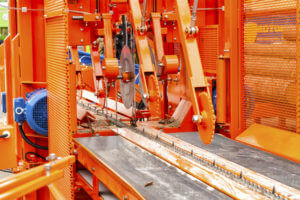
How to convert high-force linear actuators from hydraulic to electric
Things are changing in industrial automation. Many linear motion applications are getting more sophisticated with increased demand for control of process variables like velocity, thrust, acceleration/ deceleration and more.
It’s common for new applications that require high thrust from a linear actuator to use electric motion systems. Moreover, machine designers are converting existing hydraulic motion systems to electric.
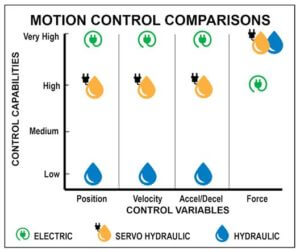
High force linear actuators: how to convert from hydraulic to electric
Electric linear actuators have come a long way – especially in the area of high force. Once upon a time when an application required high force, the usual linear motion solution was a hydraulic cylinder. However, as industrial automation gets more sophisticated and the need for precise control of speed, force and other variables grows, more engineers are considering electric high force linear actuators.
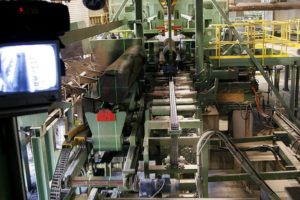
Advantages of rodless electromechanical actuators
Many industrial applications call for linear actuators. After gathering the data, the designer faces a crucially important choice early on – whether an electric rod actuator or rodless electromechanical actuator is best. If a rodless actuator is the choice, there are several factors the designer considers in final selection.

Electric cylinders speed up food processing operation
From food processing plants to machine shops, there’s a constant drive for greater efficiency, faster turnaround and less downtime. Everyone is involved in the effort, from design engineers who develop equipment to plant engineers who manage processes. In food processing operations, the need for speed translates into things like faster operation, easier cleaning, greater accuracy and less maintenance. Electric linear actuators and electric cylinders used in these plants need to meet specific standards.

 Ask an Engineer
Ask an Engineer